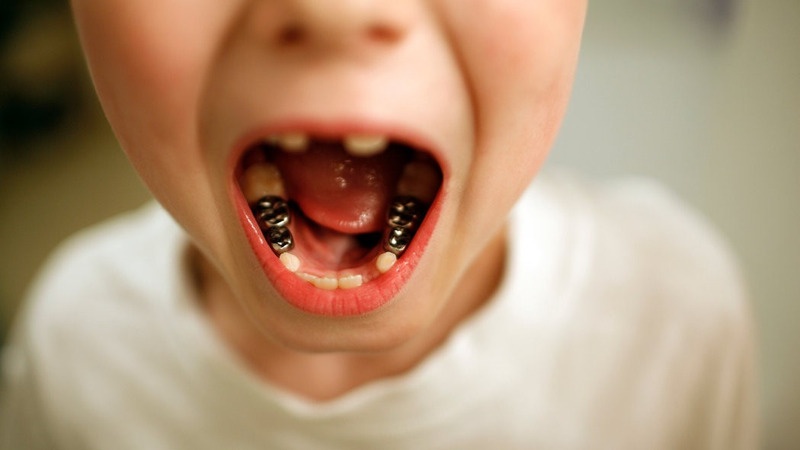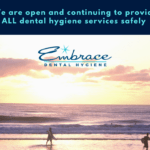High risk kids need high risk care. Cavities can be prevented with customized dental care.
Kids and cavities. Tooth decay is one of the most common preventable illnesses in children. Cavities are a symptom of systemic imbalance. Development of cavities is also contributing to poor health, poor sleep, poor nutrition and pain. There is no one cause of cavities. It is not a problem with the tooth but the system that houses the teeth. Cavities are a result of multiple risk factors including nutritional deficiencies, medical issues, digestive dysfunction, oral breathing habits, bacterial overgrowth, diet, access to dental care, tools and products we use and more. The good news is all of the risk factors are manageable. But in order to get to the root cause of your child’s decay a comprehensive assessment is necessary. During an assessment we look at all of the above and design a plan for your child’s needs. High risk kids need high risk care. That will look different for each child. The key to health is individualization of the supportive dental care and education provided. No child should have to experience cavities. We offer cutting edge support like remineralization therapies, pH management, silver diamine fluoride, oral probiotics, nutritional counselling and supplements as well as comprehensive whole health dental care.
https://www.facebook.com/122283154784827/videos/1528090784035438
How do you know if your child is high risk? Here are some things that increase your child’s risk for tooth decay.
- Have they experienced tooth decay under 5 years of age? Early childhood cavities indicates high risk.
- Did you or your partner experience cavities as a child? Decay risk is related to genetics in that parents pass the bacteria involved in tooth decay to their child. And children share habits and lifestyle of the parents.
- Were they premature? Or did they experience chronic illness as an infant? A premature or unwell child’s tooth development may have been challenged. This can lead to higher risk of decay.
- Were they nursed/breastfeed or bottle fed beyond 1 year of age? Prolonged nursing or bottle feeding can contribute to a higher risk for tooth decay.
- Do they drink beverages other than water in a sippy cup or bottle? Nothing but water should be available to a child on demand or in a sippy cup. Small frequent sips of juice, milk or any other beverage can contribute to tooth damage.
- Do they have acid reflux? Babies and kids with acid reflux are higher risk for disease. Increased acidity in the mouth promotes tooth damage and bacterial overgrowth.
- Have they had their first dental visit? Baby’s first dental visit should take place within 6 mths of appearance of the first tooth. Your dental care provider can identify risk factors, see early disease and provide you with the tools to manage their health as well as recommend the best interval for supportive dental hygiene care.
- Do they have an oral breathing habit? (breathe through their mouth instead of nose) Children who mouth breathe are at higher risk for decay and higher risk for needed orthodontic intervention.
- Are they a picky eater? A child who is nutritionally deficient or avoids whole fibrous foods is at higher risk for decay.
- Do they have medical conditions or take medications? Most medical conditions and medications can interfere with or challenge your child’s development making them higher risk for decay.
- Is their digestion on point? Poor digestion is linked to increased oral disease.
- Does your child have braces or orthodontic appliances? These kids need help maintaining and removing bacteria. We recommend all children with braces or appliances have an increased frequency of preventative maintenance.
- Do they have lip or tongue ties? Soft tissue tethers inhibit proper swallowing and speaking as well as make cleaning the teeth more difficult. This increases a child’s risk for disease.
- Does your child fight brushing and flossing? or not have a dental hygiene ritual at all? Brushing your childs teeth needs to begin as soon as one tooth is present, flossing as soon as two teeth are erupted next to one another. Without local management of bacteria your child is at high risk for oral disease. We recommend an adult provide, assist or supervise until at least age 10.
- Is there staining or discoloration on their teeth? This can be an indication of early decay, acidic damage or poorly developed enamel. All of which may progress to cavities that will need restorations.
- Do they eat a moderate amount of refined or processed foods? Crackers, breads, granola bars, snack foods like chips and candy are all dangerous for your child’s health. We recommend a diet that includes mainly whole foods like nuts, seeds, fruits, vegetables, whole grains, beans and proteins.
If your child has one or more of these risk factors we can help protect them from cavities. Call us today 519-736-1100 or email [email protected] to set up a consultation or preventative dental visit.
How can we protect your high risk child from tooth decay and fillings?
There is more to preventative dental hygiene care than cleaning teeth. Once a comprehensive assessment has been completed we can then compose and customized care plan that meets your child’s needs. This care plan may include:
Nutritional analysis and dietary counselling.
Increased frequency of preventative maintenance.
Remineralization therapies.
pH testing and management
Oral hygiene instruction and recommendation of tools to match your needs and preferences.
Recommendation of supportive products with therapeutic benefits to manage bacteria, neutralize acids and strengthen enamel.
Call us today for a free consultation 519-736-1100 or to book your child’s preventative cleaning, cavity prevention therapy, remineralization treatment, or oral health assessment. We will help you get to the root of preventable oral disease with diet habit, lifestyle modifications in your customized care plan.
Whole health dental care. Prevention focus. Cavities are preventable.




Share This Article
Choose Your Platform: Facebook Twitter Google Plus Linkedin